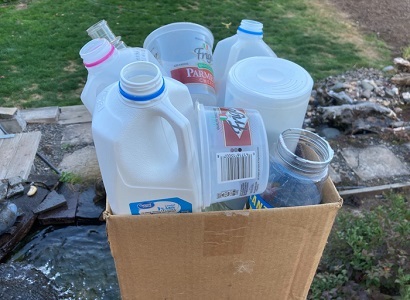Process Can Convert Mixed Plastics to Single Chemical Product
19 October, 2022

A research team combined chemical and biological processes in a proof of concept to “valorize” mixed plastic waste. (In this context, valorize means to enhance the value of something.) The research builds on the use of chemical oxidation to break down a variety of plastic types, a method pioneered a decade ago by chemical industry giant DuPont.
“We developed a technology that used oxygen and catalysts to break down plastics into smaller, biologically friendly chemical building blocks,” said Lucas Ellis, an assistant professor of chemical engineering at Oregon State University. “From there we used a biologically engineered soil microbe capable of consuming and ‘funneling’ those building blocks into either a biopolymer or a component for advanced nylon production.”
Plastics can be made from different polymers, each with its own unique chemical building blocks. Current recycling technologies, however, can only operate effectively if plastic containers are clean and separated by type. When polymer chemistries are mixed in a collection bin, or formulated together in certain products like multilayer packaging, recycling becomes expensive and nearly impossible.
“Our work has resulted in a process that can convert mixed plastics to a single chemical product,” explained Ellis. “In other words, it is a technology that recyclers could use without the task of sorting plastics by type.”
Ellis and team applied the process to a mix of three common plastics: polystyrene, used in disposable coffee cups; polyethylene terephthalate, the basis for carpets, polyester clothing and single-use beverage bottles; and high-density polyethylene, used in milk jugs and many other consumer plastics.
According to the study published in Science, the oxidation process broke down the plastics into a mixture of compounds including benzoic acid, terephthalic acid and dicarboxylic acids that, in the absence of the engineered soil microbe, would require advanced and costly separations to yield pure products. So, the researchers engineered the microbe, Pseudomonas putida, to biologically funnel the mixture into one of two products—polyhydroxyalkanoates, an emerging form of biodegradable bioplastics; and beta-ketoadipate, which can be used in the manufacture of performance-advantaged nylon.
The research team said they will test the process on other types of plastics in future work, including polypropylene and polyvinyl chloride.
Useful Links:
Source: www.laboratoryequipment.com
